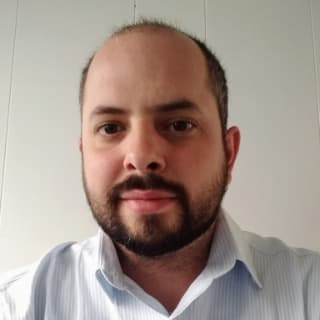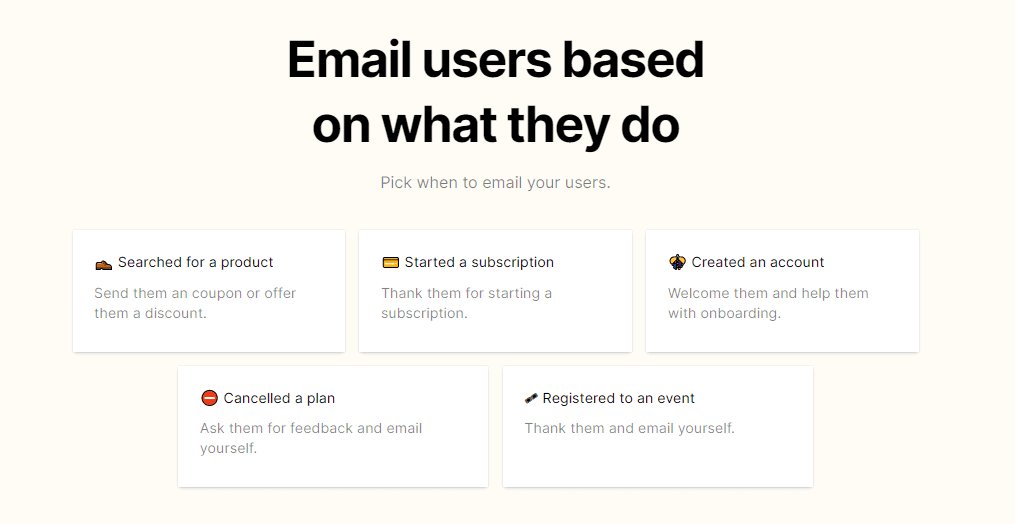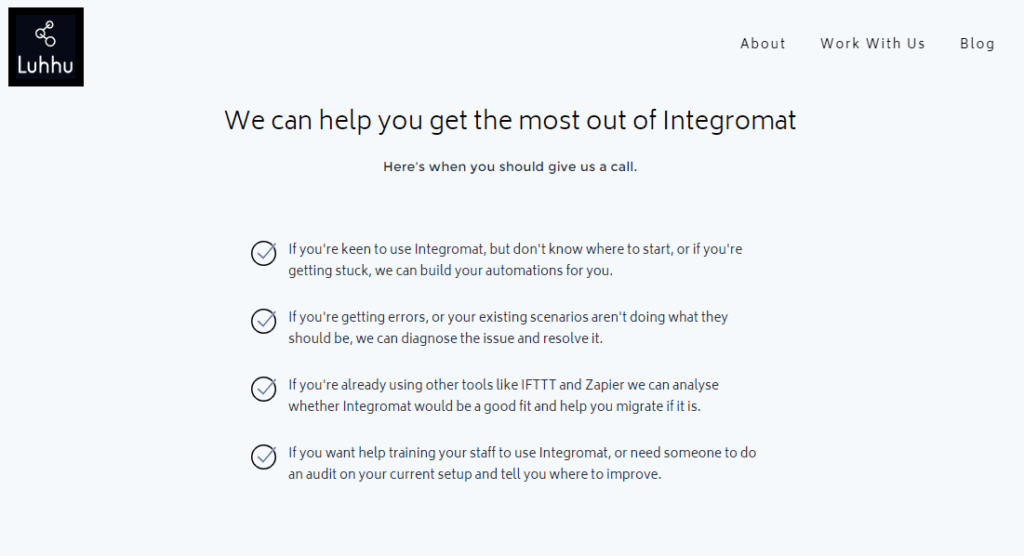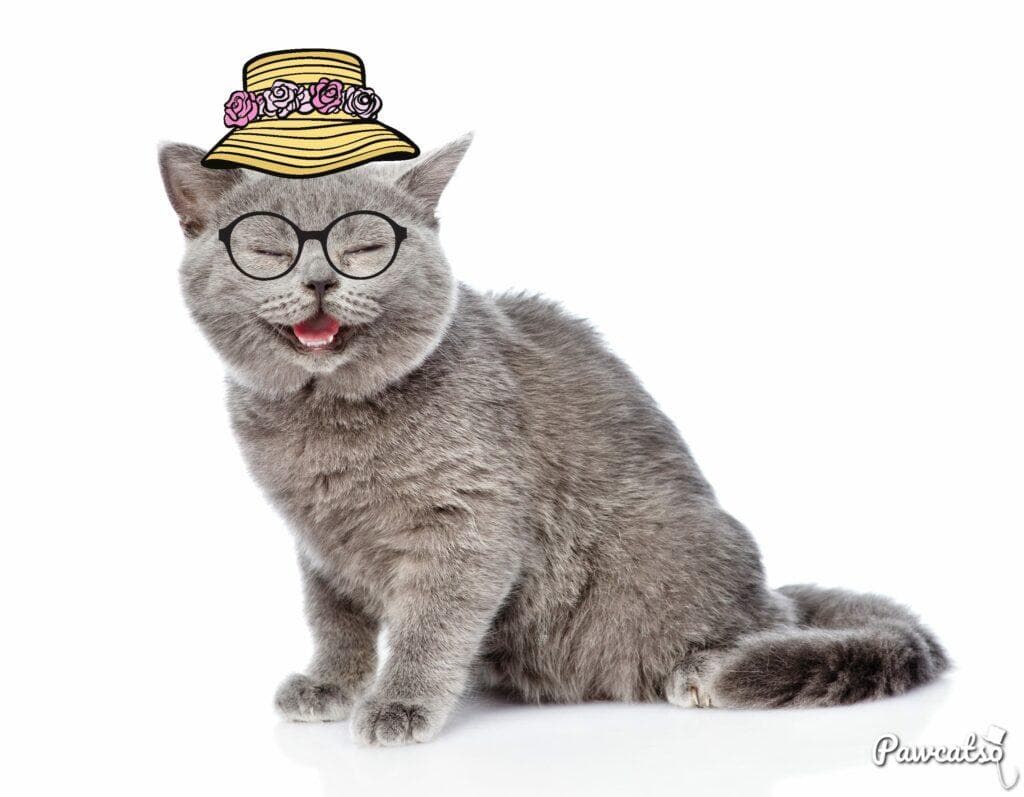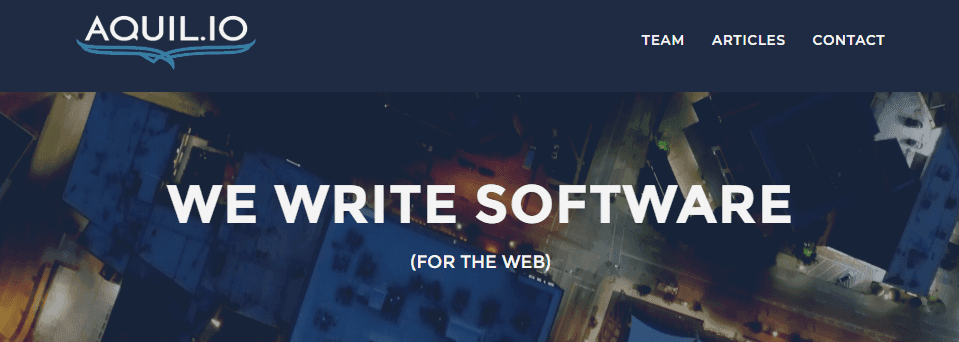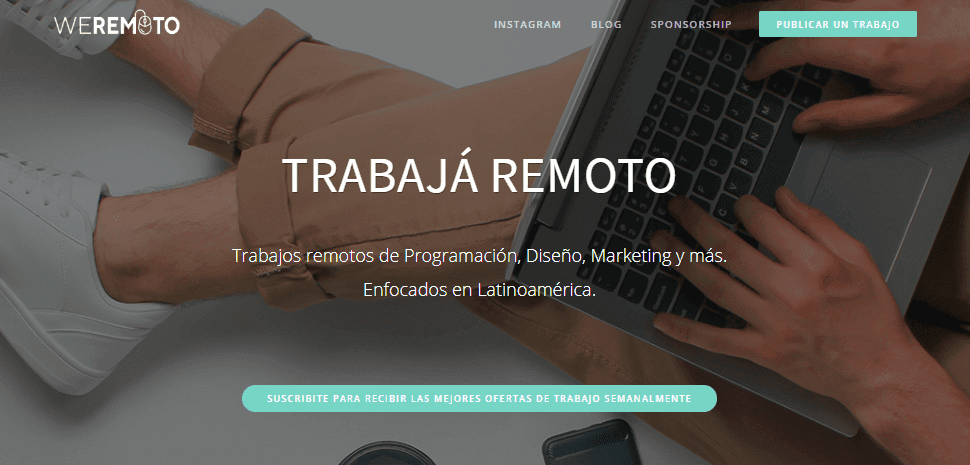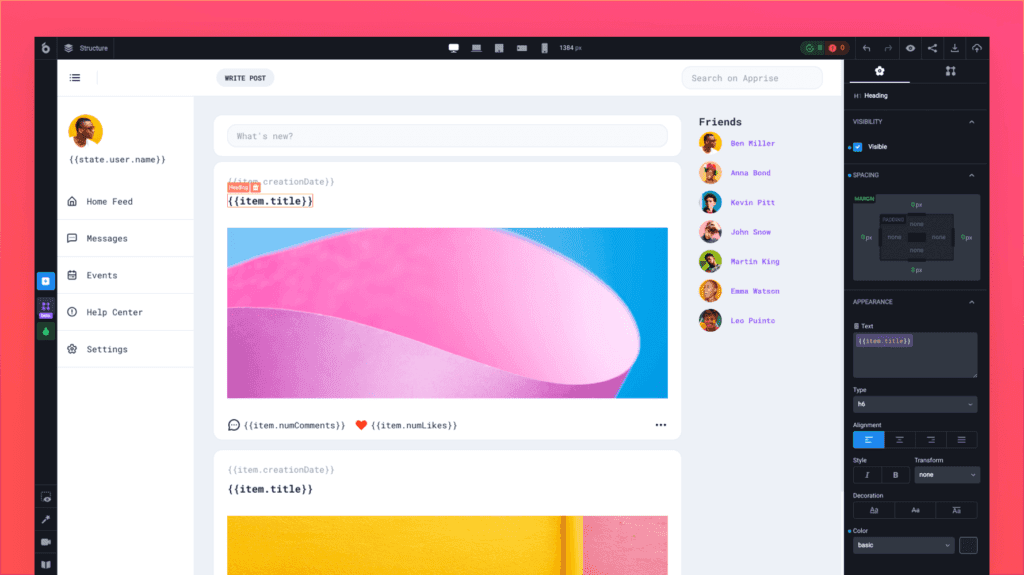Aug 7, 2020 | 15 minutes
The Making of a Maker: Six Professionals Share Their Stories
The term “maker” refers to someone who tinkers with digital tools to create digital products and services. Learn more from six makers who their experiences.
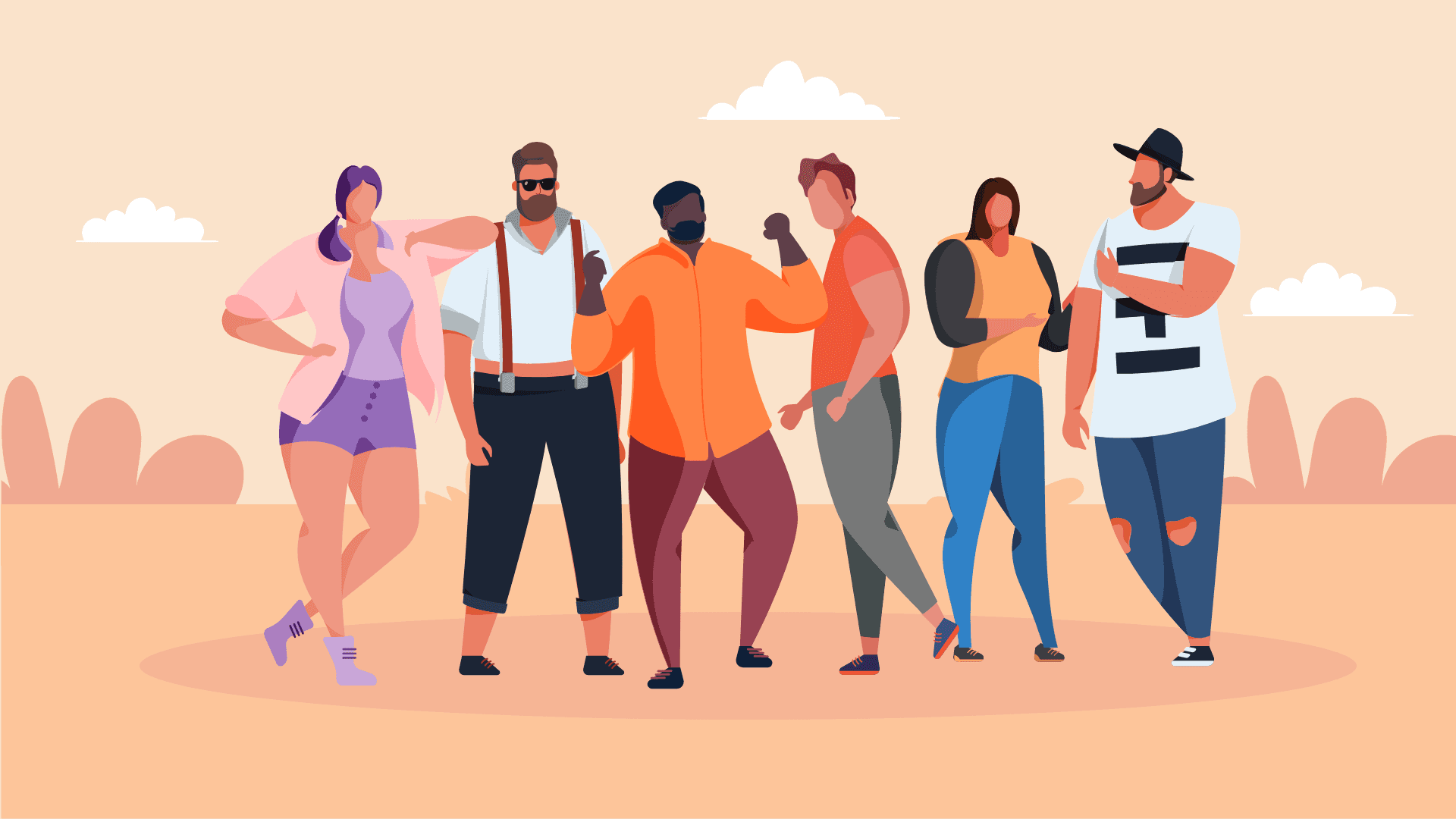
What is a maker? What makes a maker? How do you become a maker?
While ubiquitous in the no-code universe, the word “maker” is vague because of a simple reason: we all make things.
I write. My dad builds furniture. Others develop software, design cars, or devise strategies for political campaigns. Everyone makes something.
And yet, we don’t quite fit the term “maker”.
So, what is a maker, then?
It’s a hacker! It’s a developer! It’s a maker!
In its modern acceptance, the term “maker” refers to someone who tinkers with digital tools to create or improve digital products, services, assets, and workflows.
In addition, “makers” can be defined as a group of people that operates at the intersection of other two recognizable subcultures: DIY, and hacker culture.
However, is this enough to consider makers a subculture? It is hardly a secret that many out there see the term “maker” as nothing but a buzzword.
It’s an interesting discussion, but there is an undeniable aspect that makes me think we are in the presence of a growing subculture: in the past few years, more and more people began to identify themselves as makers.
Which leads me to my second question: what makes a maker? What traits and values characterize makers over similar subcultures?
To answer this question, I interviewed 6 different makers from around the world, and asked them about the early steps in their “maker journey”.
This is what they told me.
The maker’s journey: Tools, inventive, and “delusional optimism”
“I am a maker of useful things.” - Eva Zeisel, Industrial Designer
In order to get a better understanding of makers, I reached out to six makers from different backgrounds and asked them the following five questions:
What was the first thing that you made?
What was on your mind after realizing that you were capable of making things?
What are the most important traits a person needs to become a maker?
What project of yours makes you proud?
Is this a good time to be a maker?
Now let’s take a look at what they answered.
1. Paula Alcalá, co-founder of Palabra.io
A young entrepreneur based out of Buenos Aires, Argentina, Paula is the co-founder of palabra.io, a smooth email marketing automation tool. Here are her views on the maker’s journey, and her own experiences as one.
What was the first thing that you made?
I learned I could create short "videos" with PowerPoint presentations. I think I was about 7 at the time. It was like stop-motion but with slides, and I started creating a lot of videos with a tool I knew wasn't made for that purpose. I was so excited to show everyone my creations and how I had used PowerPoint for it!
What was on your mind after realizing that you were capable of making things?
I never considered myself a creative person, but that's because I had a narrow definition of creativity. Once I started learning about the maker and no-code movement I realized I've been a maker since I was a kid - using the tools I had available to create a solution to problems. I think we are all constantly making things, we just don't realize our own capabilities.
What are the most important traits a person needs to become a maker?
What came to my mind at first was curiosity, but all humans are curious. I think what makes someone a maker is realizing they are actually able to create something, to do something about a problem they notice.
It may be delusional optimism, but I think us makers start new projects with huge confidence that we WILL solve whatever it is we are trying to solve, and that's what gets us to keep on working until we achieve it.
What project of yours makes you proud?
My biggest pride right now is the email marketing tool we are creating at palabra.io. Talking to marketers, founders, and no-coders and trying to solve their problems is something that makes me proud every day.
Is this a good time to be a maker?
If you have access to the internet and working devices, I think it's a great time to be a maker. No-code tools are getting more and more popular, and you don't have to study years of software engineering to create something with technology.
Each day we have more easy to access (and mostly free) knowledge and tools to create solutions to big and small problems. I think we still have to work to get more people to be able to access digital solutions, but we are on the right path.
2. Andrew Davison, founder of Luhhu and Teacher Finder
An expert in automating processes for all kinds of businesses, Andrew Davison is the founder of business-automation agency Luhhu, and of Teacher Finder, a service that helps language teachers find students.
Below, his opinions about the maker’s journey.
What was the first thing that you made?
When I first moved to Hungary as an expatriate aged 24, I started a small lead generation business to help language teachers find students. It's called Teacher Finder and still runs today. It's powered by WordPress, Bubble, Make, and a few other tools. It essentially runs on autopilot with an hour or two of my time put in each week.
What was on your mind after realizing that you were capable of making things?
Really exciting. I'd dropped out of a computer science degree years before, and without coding skills, I assumed I would never be able to create an online business. So when I learned that tools existed that could let me build and launch something in a matter of weeks, it was like a light switch going on.
Over the next few months, I found myself crunching over new ideas in my brain, thinking about what to build next.
What are the most important traits a person needs to become a maker?
Creativity and persistence go a long way. Creativity, because depending on what you're building, there probably won't be a single tool that will give you everything you need. You'll need to experiment until you get the different pieces in place.
And persistence, because you're going to hit roadblocks when you build, you are going to get bugs, and there are going to be missing features or issues that get surfaced by customers after launch - you'll need to work hard to keep everything moving forward.
What project of yours makes you proud?
It's my automation agency Luhhu. I learned to use tools like Make when I built Teacher Finder, and quite by accident I started to help other businesses with automation and started a nice freelance career out of it. In 2019, as my workload continued to grow, I knew I had a chance to build an agency and scale things up - so I did!
Is this a good time to be a maker?
Absolutely. Never have there been more tools on the market, and all of them are starting to reach a level of technical maturity where you can do innovative stuff with them. Not only that but with a few solid years of success stories, the support network exists out there to help new people learn.
3. Curtis Cummings, co-founder of Aquil.io
Curtis is the co-founder of aquil.io, a Dallas-based software company specialized in web app development. While relatively new to the world of no-code, Curtis has 20+ years of experience as a developer, consultant, and agency owner.
What was the first thing that you made?
I made my first website when I was 12. This was in the Internet 6-era when you built entire websites out of tables. I had just learned some basic HTML/CSS and decided to make a video game review site. I guess it was kind of no-code because we had tools back then like FrontPage and Dreamweaver.
The first things I made with current no-code tools were automations using Zapier and Make. I just finished my first paid no-code project using mostly Make to create an automated social media campaign. People tweet at @pawcatso with a picture of their cat and a trigger word and we transform their image. To start we were putting hats on cats -- which involves a bit of machine-learning magic -- but the majority of the stack was no-code tools.
What was on your mind after realizing that you were capable of making things?
My 12-year old brain was amazed that I could bang out some HTML in an editor, push a button, and have a website that anyone could visit. When I discovered the current no-code movement, I was blown away by what people were able to launch without coding.
The sophistication the tools have now is very powerful. I hesitate to call it no-code at all because it is much more like visual programming. Delivering a project with no-code tools requires a lot of technical skill.
What are the most important traits a person needs to become a maker?
Number one without a doubt is being a constant learner. Whether you want to go for breadth or depth, there's a lifetime of learning to be done.
The other is detaching your self worth from your work. It can be very hard when people critique your work. Recognizing that they are attacking the work and not you is an important thing to develop.
What project of yours makes you proud?
In coding, being one of the lead programmers on a rewrite of the Apple Online Store's UI. That's right up there with starting my own consulting agency which has been going for 3 years now.
In no-code, I'm proud of the automated social media campaign. I went from not knowing Make exists to having someone pay me 3 months later to deliver a project that was based almost solely on Make and a mix of other no-code tools.
Is this a good time to be a maker?
I don't think there's ever been a better time to be a maker. Tomorrow will be better than today and so on.
The barrier to entry is almost 0. Anyone with an internet connection and a device can make something right this instant. The tools are powerful and flexible enough that, without learning to code, you can make almost anything.
4. Amit Sarda, freelance business consultant, and Glide Apps certified expert
Amit is a business consultant and from India. He runs his own consultancy, where he helps founders and entrepreneurs advance their businesses.
What was the first thing that you made?
It was an app to organize notes from my Amazon Kindle. All notes were centrally searchable from a single place and could be browsed by the book they were from. In the app, I could further annotate these notes within the app to paraphrase them for my understanding.
What was on your mind after realizing that you were capable of making things?
I have always wanted to be an app developer but I could never invest the time in learning things, which also seemed overwhelming. Having developed 0 apps in my life before, I have developed more than 100 apps in the past year alone, since starting with Glide Apps. I knew I was capable of making things, and Glide made it a reality.
What are the most important traits a person needs to become a maker?
Curiosity, hunger to learn new things.
Intuition, understanding who the users are, and what their primary ask is from the product.
Clarity, knowing what is possible with a platform, what is not. Knowing what you should do with a platform, what you shouldn't.
What project of yours makes you proud?
I developed a Daily Quiz App in Glide that became a hit with Glide's community. I have received a number of queries to share the app and I have now put it up on the Glide Template store for purchase. It also showed people that you can create fun games using Glide.
Is this a good time to be a maker?
The best time to be a maker was yesterday. If not then, be one now.
Making products is a great way to show the world what you're capable of. You can be a maker for your own needs, or be one for others who have a pressing need and are willing to pay for your services. Announcing to the world what you're building also serves as a positive signal about you. People like working with people who have things they are passionate about.
5. Gastón Levy, founder of Zimba and WeRemoto
Gastón is the founder of WeRemoto, an online job board focused on remote jobs for professionals in Latin America.
What was the first thing that you made?
Back when I was 18 years old, we used to sell extreme sports gear on MercadoLibre along with a friend. We wanted our own e-commerce site, and I ended up building it with OpenCart.
That was the first time I built something, with zero previous knowledge. I looked after every detail and was very happy to be able to build an e-commerce site to showcase our products without having to put lots of time or money into it.
What was on your mind after realizing that you were capable of making things?
After that first experience, I focused on learning about tools and practices. Mostly, in the areas of marketing and campaign automation. The ideas were there, but only started to feel “real” once I focused on gaining knowledge.
Also, leading a marketing agency implies that you need to be knowledgeable about tools and resources in order to evaluate and fulfill projects.
What are the most important traits a person needs to become a maker?
Curiosity, and effort. Nowadays, there are tons of resources out there, but you have to invest time in processing it and executing your plans.
It’s also important to learn about sales since most projects require customers. In my particular case, I learned a lot about sales from IndieHackers podcast.
What project of yours makes you proud?
WeRemoto is my last project. It started a year ago and already has 30k subscribers. I built it using Sheet2Site, Typeform, JotForm, and Brevo (ex Sendinblue).
I’d been paying attention to the no-code movement for a while and was eager to try some tools. So I ended up building a job board for remote jobs in Latin America in just a few hours.
By speeding up the building process with no-code tools, I was able to focus on user acquisition, and it soon became a success.
Is this a good time to be a maker?
Absolutely. There have never been so many user-friendly tools and tutorials. Plus, there are countless unsolved problems. If you develop a solution and click with an audience, you have, at the very least, a good side-project.
6. Tatiana Yudina, product manager at UI Bakery
An experienced product, business, and project manager, Tatiana is one of the brains behind UI Bakery.
What was the first thing that you made?
When I was 24, I launched an innovative mobile banking app with my team. It had 3 main features that no one had in the country:
An online acquisition channel that first seemed impossible to create by law
A novel way of communicating with clients at any contact point
An absolutely new interaction method
Firstly, the app seemed to be very contradictory. Half the clients loved it, the other half hated it. But it was developed with marketing purposes, and with the aim to change user behavior.
What was on your mind after realizing that you were capable of making things?
It’s like a flow of unstoppable thoughts of what else I can do coming through my mind every minute.
In the case of a local banking app, we’ve gained a lot of clients, and it’s quite a recognizable product now.
Now, I’m working on the product built from scratch. It’s used worldwide, and this experience is much more “technological” than my first one. Nevertheless, making products is always about growth, inspiring, and getting inspired, and a range of new peaks to conquer.
What are the most important traits a person needs to become a maker?
Inspiration, an inquiring mind, and critical thinking.
You need the first ingredient to believe in your idea, never lose motivation after a number of failures, and share your motivation with your team.
You need to have an inquiring mind to “stay hungry”. You must live with the thought that you still don’t know enough – about your customers, the market, business possibilities, professional area trends, and so on.
And you need to think critically not to build castles in the air. You should believe data and only data not to miss the moment when you’ll need to change your direction or make a greater effort.
What project of yours makes you proud?
UI Bakery. That’s what I’m currently working on. It’s the product born almost from nothing. When we started out, we didn’t know the market, the audience, the direction of the product development. We had some vague ideas on where to go, and some cool Open Source products under the hood.
Is this a good time to be a maker?
Yes. The market develops very fast, and new technologies are breaking into it every day disrupting even the large players’ activities and plans. The market is getting globalized. Everything you need to reach the customer from the opposite side of the Earth is a good proposal that will meet their needs.
Since technologies are developing at enormous speeds, a lot of businesses are open for collaboration with start-ups capable of bringing innovations to their companies.
Conclusion: Different backgrounds, similar journeys
I was surprised to find a common thread among a diverse crowd that hails from every corner of the world. To answer the question of what makes a maker, it is clear that:
Technology is the big enabler, and no-code tools steal the show
Global markets allow makers from all over the world to offer new, interesting products that otherwise would be difficult to sustain
Having the right mindset is key. If you don’t believe you can solve something, you won’t
For me, this proves that the maker subculture is far more diverse and subtle than what some of its critics think - and just as innovative, if not more.
As it turns out, the traits that make a maker transcend cultural and economical boundaries. This, my friends, is good news in a difficult world.
The time to make is now, and we oughta make it better.
Happy automating!
This post has been updated with corrections on August 18, 2020.
Ready to make the automation revolution happen?
